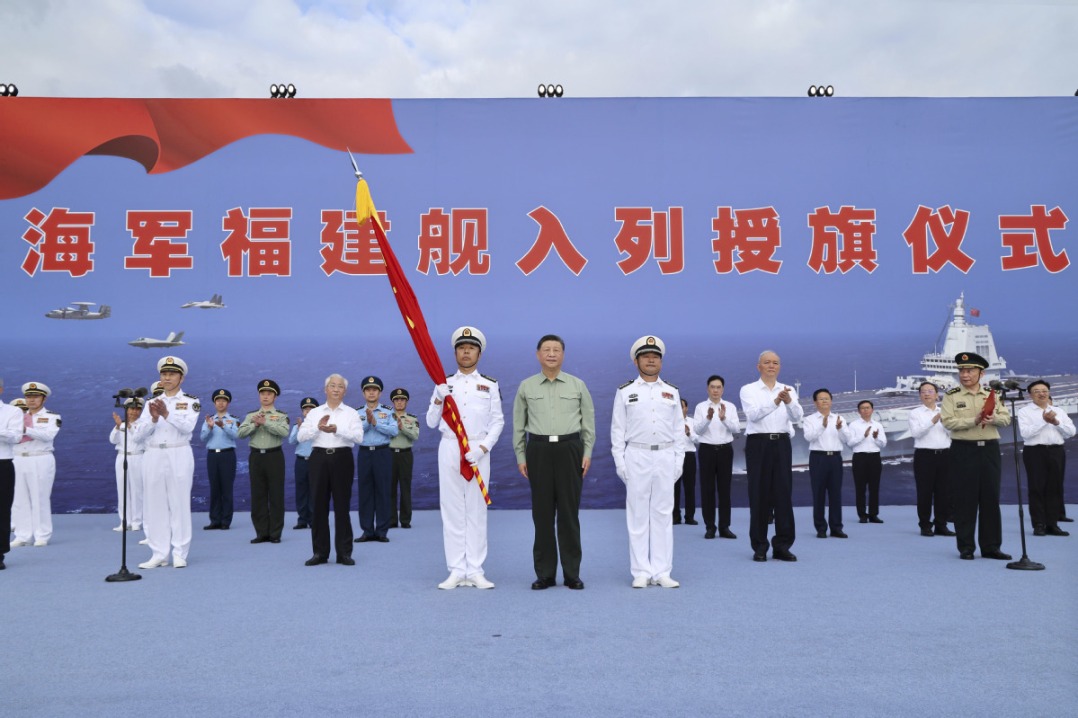Regional apple tree blighted by Washington: China Daily editorial

The recent state visits of President Xi Jinping to Vietnam, Malaysia and Cambodia, as his first overseas trip of the year, highlight the importance Beijing attaches to relations with neighboring countries. As the central conference on work related to neighboring countries that convened before his trip made clear, China hopes to work with countries in the region to consolidate the traditional friendship and enhance the strategic mutual trust and practical cooperation that have served to make the neighborhood a vibrant and dynamic community with a shared future.
It is regrettable, therefore, that the Philippines seems intent on proving itself to be a bad apple. In its latest misguided move, around 5,000 Philippine troops began military exercises with about 9,000 US troops on Monday.
The drills, which will run until May 9, are being staged in western and northern Philippine locations facing the South China Sea and the island of Taiwan, which, thanks to repeated provocations from the United States and the Philippines, have become regional flash points.
In what was described as a "full-scale battle scenario" by the US and Philippine militaries, the drills feature a simulated counterattack against an enemy force occupying an island, the sinking of a mock enemy vessel, joint patrols and aerial reconnaissance missions. Australian forces are also participating, while Japan and a few other nations have sent observers.
US and Philippine officials have said the drills do not target any other nation. But such rhetoric rings hollow in the face of the simulated battle scenario and the drills' scale and the involvement of other countries, which far exceeds the scope for a regular bilateral military exercise.
The locations of the drills in disputed waters in or near the South China Sea and facing the island of Taiwan also lay bare the two countries' intention to target China and stir up trouble over the South China Sea disputes and the Taiwan question. Hence it is natural that the US-Philippine joint drills have been strongly condemned by China.
On Monday, Chinese Foreign Ministry spokesman Guo Jiakun criticized the Philippines for disrupting regional strategic stability and expressed firm opposition to any country using the Taiwan question as a pretext to strengthen military deployments in the region.
As the world is facing challenges of unilateralism, protectionism, and hegemonic bullying, countries in Asia need to make concerted efforts to strengthen solidarity and cooperation so as to maintain a stable, secure environment for their development. What the Philippines is doing runs counter to that. By siding with the US, a non-regional country, and conducting massive war games with it in waters near strategically important international waters, it has revealed its malicious intention to continue to make waves over the South China Sea and the Taiwan question at Washington's bidding.
Beijing has repeatedly reminded Manila that the Taiwan question, which is a core interest, is its internal affair, and that those who do not stop playing with fire will eventually get burned.
Manila would be naive and foolish to count on the US' support for it to mine gains from its illegal and ill-grounded territorial claims in the South China Sea. It should have appreciated by now that the US only wants to use it as a pawn in its self-initiated strategic competition against China and a launchpad for its missile deployment. In response to the repeated provocations of the US and the Philippines, the People's Liberation Army has stepped up vigilance and combat preparedness and readiness in the South China Sea and the Taiwan Strait, sending an unmistakable message to the outside world that it will not tolerate any moves that aim to infringe upon China's sovereignty and territorial integrity.
Beijing has tried many times to talk some sense into Manila by underscoring that peace and stability in the South China Sea serve the common interests of all countries in the region, including those of the Philippines. It has also repeatedly affirmed that it seeks to resolve differences through dialogue. But this should not be mistaken for weakness. It does not mean it will tolerate provocation and coercion, nor will it be daunted by the muscle flexing of the US and the Philippines.
By rejecting the outside interference of the US and consolidating political mutual trust with Beijing through high-level interactions, Manila can play its part in helping the region to continue to reap fruitful outcomes from practical cooperation and close and effective multilateral coordination.



































